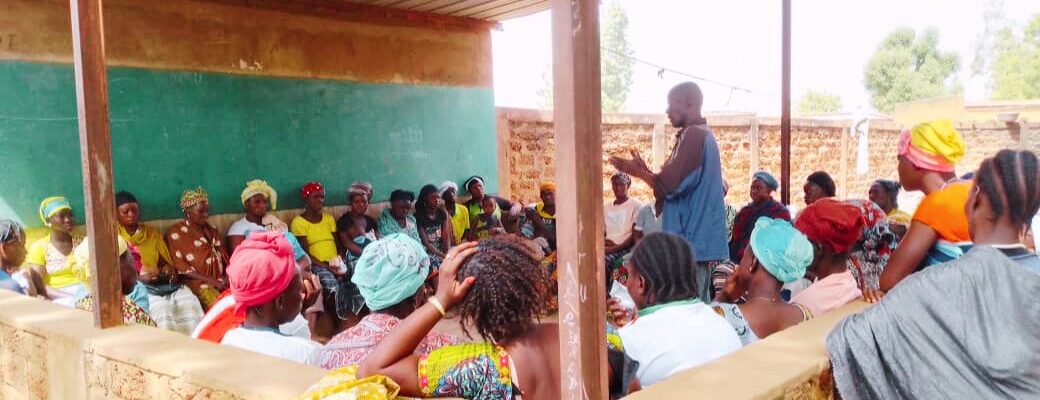In West and Central Africa, the Regional Humanitarian Fund supports displaced women and girls
Burkina Faso and Niger | 2023 | CBPF
Burkina Faso and Niger. “Our garden used to provide us with enough food. But we lost everything,” says Roukietou, a mother of two in Banwa province, Burkina Faso, who had to flee her home because of violence.
In neighbouring Niger, Amna cried herself to sleep. Also displaced by conflict, she was suddenly forced to marry an older relative. “My dreams were shattered,” she said.
Mass displacement and conflict uproot people’s lives, leading to more risks for women and girls, including hunger and poor nutrition, as well as gender-based violence and sexual exploitation.
Burkina Faso continues to experience one of the fastest-growing humanitarian crises in the world, with an estimated ten per cent of the national population – more than two million people – internally displaced due to violence and insecurity. A quarter of the population is currently reliant on humanitarian aid.
In Niger, forced displacement has been triggered by conflict, malnutrition, recurrent health epidemics, cyclical floods and drought. It means that 4.3 million people, including 2.4 million children, need humanitarian assistance in 2024.
Help to continue schooling.
Amna and her family fled conflict in their village and made for a displacement site in Tillaberi. But, when Amna was only 12, she was married to her cousin, against her wishes. Then, at 14, she became pregnant.
Ultimately, Amna did leave. A friend advised her to get in touch with the international NGO Help, which offers services in Tillaberi with the support of the Regional Humanitarian Fund for West and Central Africa.
Amna met a Help midwife as well as a mental health counsellor. She described her regrets about leaving school and, being pregnant, her worry that she wouldn’t be able to return. The midwife and counsellors told her they would help her to get back to school.
When the baby was born, Help provided food, hygiene supplies, clothes, and formula. The counsellor and baby nurses visited regularly to check on them and make sure they were well. With support from family members, Amna has been able to return to school. “I sleep well now,” she says.
Knowledge, support, and leadership.
In Burkina Faso, the international NGO EngenderHealth hosted classes on nutrition, hygiene, and childcare for displaced women like Roukietou. They were also an opportunity to learn and connect with other women who had lived through similar experiences. “These were helpful, and I share the information with other women I know,” says Roukietou.
Another displaced woman, Rakieta, conducts awareness-raising campaigns in the community, advocating for women’s rights and decision-making.
A survivor of domestic abuse herself, Rakieta works with a project run by the national NGO SOS Sahel. “I suffered so much,” she explains. Now she works to get women involved in camp leadership and joining community committees, to help protect other women’s rights – so that no one has to live through what she did.
More information on the Regional Humanitarian Fund.
